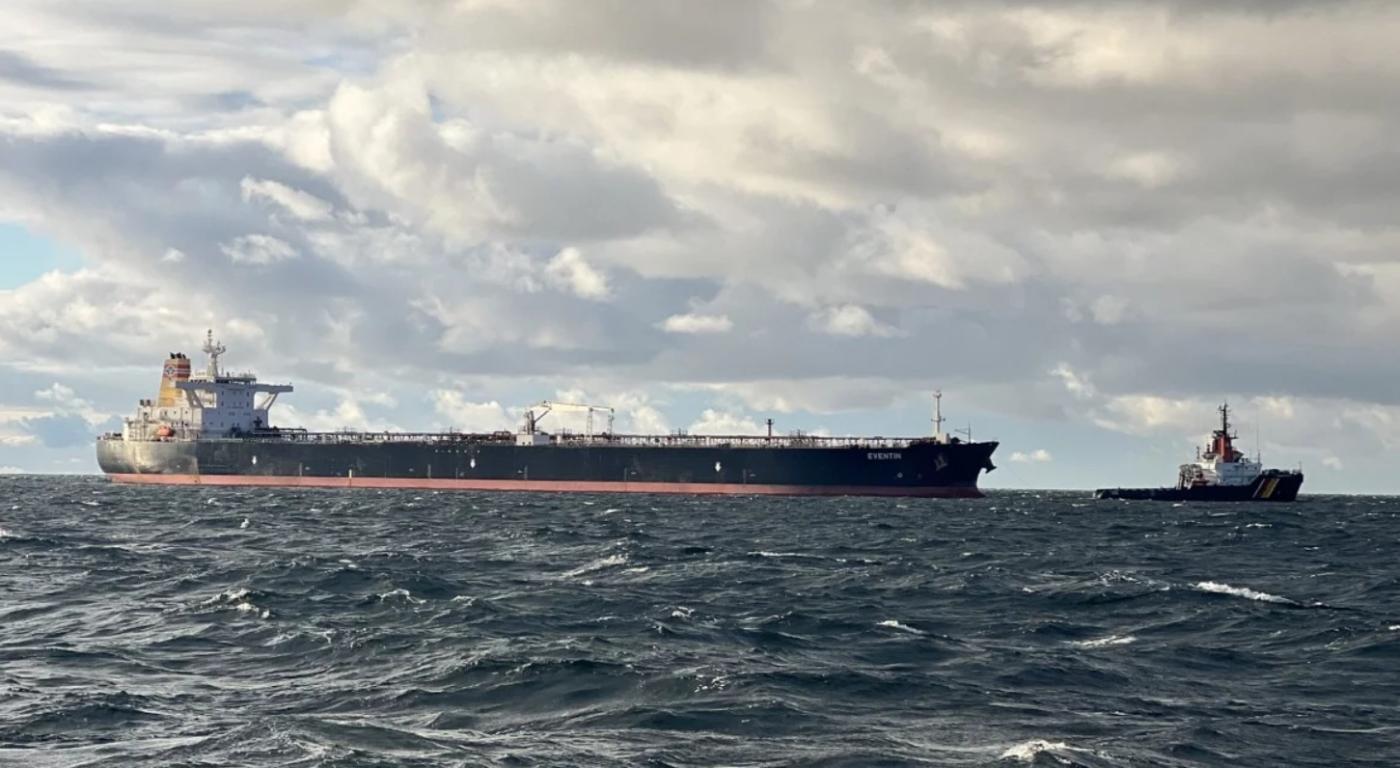Russia smuggles weapons to Libya using 'Shadow Fleet' of aging cargo ships. Interpol investigation reveals
Russia is covertly supplying arms and military equipment to Field Marshal Khalifa Haftar's forces in eastern Libya via a clandestine "shadow fleet," according to a damning new Interpol investigation.
security logistics worldwide news25 april 2025 | 13:26 | Source: PAP / Gazeta Morska | Prepared by: Tadeusz Brzozowski | Print

fot. X / Nexta / nexta tv
Since last year, the international police agency has tracked a network of aging cargo vessels—many sailing under the flags of obscure nations—that Moscow uses not only to smuggle sanctioned oil but also to funnel illicit arms into the volatile North African region.
Monitoring ships docking in the eastern Libyan port of Tobruk, Interpol uncovered consistent weapons shipments departing from Russian ports on the Black Sea. Some of the arms have reportedly been seized by Haftar's Libyan National Army, led by the warlord and his six sons, while other shipments were allegedly diverted to the Rapid Support Forces (RSF), who are locked in a brutal conflict with government troops in Sudan's ongoing civil war.
Russia is also exploiting its foothold in Tobruk to bolster military juntas in Burkina Faso, Mali, and Niger, regimes that have hired Russian mercenaries to combat insurgents and jihadists across the Sahel. Libyan ports offer Moscow strategic leverage—allowing it to control migrant smuggling routes into Europe and establish naval operational hubs along NATO’s southern flank.
Moscow’s interest in Libyan port infrastructure has intensified since the collapse of Bashar al-Assad’s regime in Syria last December. The new authorities in Damascus have denied Russian warships access to former military bases in Tartus and the Humaymim airbase, cutting off a crucial logistical lifeline for the Kremlin in the eastern Mediterranean.
One ship used in these covert operations, the Barbaros—a cargo vessel sailing under the Cameroonian flag—was spotted in early 2024 crossing the Bosphorus Strait in Turkey. Maritime analyst Yoruk Isik published images of the ship on platform X (formerly Twitter). The Barbaros had suspiciously disabled its identification system, designed to help ships avoid collisions, raising red flags with Interpol. When agents boarded the vessel, they discovered dozens of military trucks hidden in its hold.
The Barbaros had changed its name three times and sailed under at least 10 different flags over the past 12 years. And it’s far from the only vessel involved. Documents from Operation Irini—a European Union Naval Force (EUNAVFOR MED) mission enforcing the UN arms embargo on Libya since 2020—show that Moscow has deployed dozens of antiquated cargo ships of murky ownership to ferry weapons to Tobruk and Benghazi undetected.
Russia’s reliance on such vessels has surged since its invasion of Ukraine, dramatically increasing the number of rogue ships on international waters. What was once a fleet of several hundred operated primarily by Iran, North Korea, and Venezuela has now grown to more than a thousand, with African nations like Liberia (which quickly withdrew), Comoros, Gabon, Guinea-Bissau, Sierra Leone, and even landlocked Eswatini providing flags of convenience.
Buy us a coffee, and we’ll invest in great maritime journalism! Support Gazeta Morska and help us sail forward – click here!
Kamil Kusier
redaktor naczelny
comments
Add the first comment
see also
Poland’s security in focus. President meets with ministers and heads of special services
NATO’s persistent naval presence in the Arctic and the northern Atlantic strengthens sea lane security
Poland launches second DELFIN SIGINT ship ORP Henryk Zygalski in Gdańsk
The Jan Heweliusz ferry disaster. 33 years after one of Poland’s worst maritime tragedies
Polish icebreakers in action on the Odra and Vistula rivers
Man rescued from ice 500 metres offshore in Puck Bay
Ustka a NATO opportunity? What a port on the border of two regions could change
Polish Naval Academy students advance unmanned maritime systems
Winter on Puck Bay: ice conditions, natural values, and responsible use
Accident at offshore service base construction in Ustka highlights gaps in emergency medical response
ADVERTISEMENT
ADVERTISEMENT